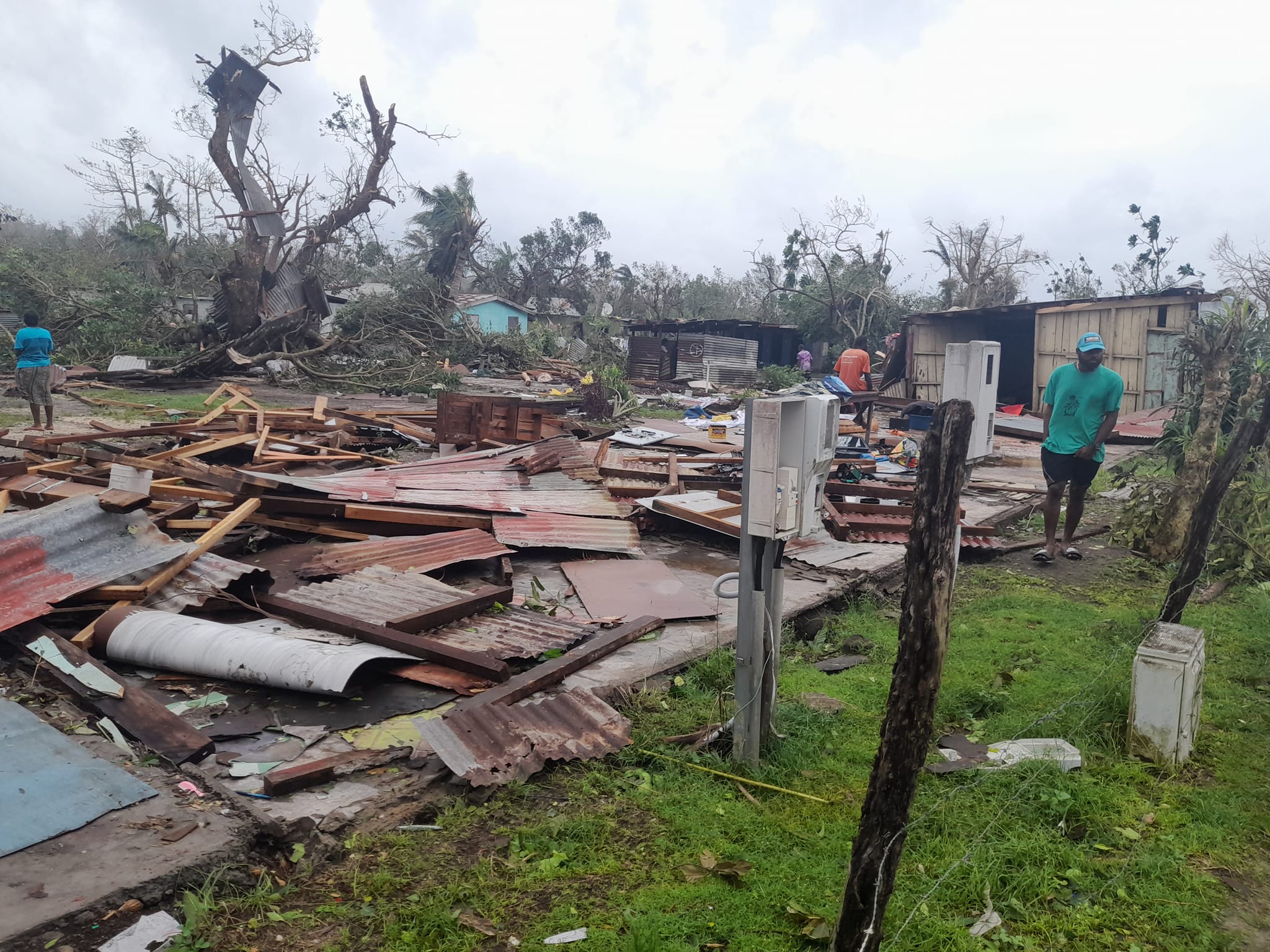Thomas Tarurongo Wynne: ‘We need to be better prepared’
Saturday 4 March 2023 | Written by Thomas Tarurongo Wynne | Published in Opinion

The devastation left by tropical cyclones Judy and Kevin in Vanuatu this week. Picture: TRIX ROBERTZ/23030327
Ka anoano ia tatou kia papa no teia au ra ki mua – As the waters subside back to their usual levels and the devastation has been left bare, we are all here left with this residual feeling – a lingering awakening that we all need to be better prepared.
If there is one thing our Cook Islands communities here throughout Aotearoa have been left with and all those who were hit by Cyclone Gabrielle – is the lesson that preparation is critical to weathering the storm.
Be it a weather storm or a storm in life.
So how prepared are we? Of course living in the Cook Islands we know the cyclone season is from November to April, and have all experienced the sirens, the locking down of shops and businesses, homes and government buildings, as prayerfully, storms and cyclones have passed us by and the devastation swirling in its clouds has moved out to sea.
Through prayer and preparation, we have managed through these storms, but we should never be complacent and always be prepared.
These cyclones all have different names, but all hold the power to destroy everything in their wake, from Val in 1991, to Martin in 1997, Pat and Nancy in 2005, and Meena, Percy and Pat in 2010.
We give them names because they are alive, all have personalities, all have a way they travel and traverse the globe, and all we should be prepared for them.
I can’t say enough, that we must prepare, prepare and prepare.
I grabbed a book from my shelf this week and was reading Rachel Reeves’ “Matini” and as she retold the stories of devastation and heroism as Manihiki was hit by Cyclone Martin, she said these, now haunting words, “It’s a reminder that preparation matters at every level – international, regional, national, familial, and individual. It’s a reminder that time-tested indigenous systems – of preparing, rebuilding, and healing – work”.
So how do we prepare?
A number of key things every household here in Aotearoa needed was made clear by Cyclone Gabrielle and I just wanted to highlight these.
Communication – Communication was critical to firstly be able to connect and track people down, and then to be able to respond to their immediate needs. Where communities were cut off from communication, people did not get the help they need quickly, and we just did not know who had survived and who had not. Imagine cell phone, internet and power have gone, how then do we communicate with each other and get information to essential services.
The answer has been the radio and Starlink internet. Never has there been such a necessity for the AM/FM radio and especially battery powered radios and Starlink – a high speed satellite internet service.
I am bringing a transistor radio back for my parents at the end of this month when I come home, and plenty of batteries also.
Our local, regional and community radio will save lives and will be the one way we can get essential messages if a cyclone hits and takes out the power.
The need for AM/FM radio and the towers that provide signal will save lives and ensure the ability to maintain communication. Starlink is also worth considering.
Supplies – Food, fresh water and fuel and generators are the next essential. Fuel is needed for generators to get power running at homes and in businesses and food, lots of non-perishable food, must be stored somewhere safe so the days or weeks after cyclone hits are not also met with hunger and thirst.
Fresh water has been a life saver as has been a ready supply of canned food. Having this stored away and ready should be the go-to for every household if we are to be prepared. I know for our own household we are not as prepared as we need to be, and why it is essential we take the time to do just that because when it hits, it may be too late.
And finally, our faith – whatever or whomever you believe in, even if it is just yourself, the need to maintain our faith during a crisis, our sense of self and our sense of wellbeing is absolutely critical.
For us as a people and as a nation, we start the cyclone season and finish with prayer and thanksgiving because in that, we as a country acknowledge to who we are reliant and answerable to, and to whom controls the heavens, the wind, the weather and ultimately our lives.
What we are responsible for is to be prepared – and we must be prepared. Ka anoano ia tatou kia papa no teia au ra ki mua.
Government has their role, but for our households and families, that responsibility is ours and ours alone.














































